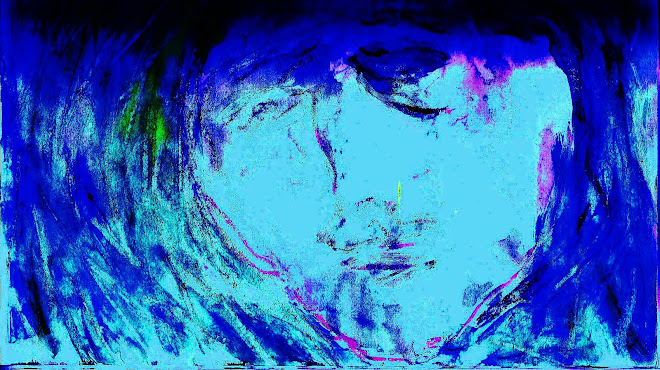I can see why humanity created religions. I can also see why many feel like all religions are a crock. Two different sides of the same coin.
When you suffer, you need someone out there who is bigger than you to lean on and to blame. You get to feel superior for sucking it up and enduring.
If no one is out there to need or blame, you get to feel like a hero, and thus superior for surviving your plight.
If we subscribe to a higher power, we earn a degree of non-accountability.
If we don't subscribe to a higher power, we still manage to latch onto non-accountability and brush off suffering by declaring: “Life sucks” or “Shit happens.”
Everyone's world comes unhinged at some point, either through tragedy, loss, hardship, illness...something bad happens, maybe even several doozies. We all get decked.
Until we do, we are usually fairly confident in ourselves and in life. Fairly arrogant actually, as though we are above intense suffering and are too privileged to be caught in its path. People who survive violent attacks, illnesses, loss of a job, serious accidents, and bitter divorces all reminisce about how they “never thought it could happen to me.”
If you have never come unhinged, reading this will either feel threatening or silly to you. You'll likely stop reading, not wanting to dwell on the idea of it.
If you are someone who thrives on remaining unhinged, you might think that will give you control over suffering...hardship and adversity on your own terms. You might be making suffering familiar because familiarity feels more comfortable.
Most people wait for the doozies before coming unhinged. And it is there that they will either reach out for some God or reject any God.
It makes sense to live in an avoidance-oriented relationship to suffering. Fun is more fun. Laughter is more laughs. Joy is more joyful. Feeling good feels so much better.
If you were given an assignment for life -- to figure out your suffering –- would you do it? Or would you just blindly accept that suffering is the human lot in life, is non-negotiable, and just press on avoiding it whenever possible?
Christ was given an assignment: to endure suffering for the sake of humanity.
No one argues that the Shroud of Turin bears the image of a crucified man. But lots of people dismiss the Shroud as the burial cloth of Jesus Christ. Still no one can explain how the image got on the cloth. Even if the carbon dating results are true, no one can explain how someone in the Middle Ages could have created the image, given the technologies required were not in existence at that time in history.
So here we have an unsolved mystery that binds science and religion. Yet, it is a mystery that has been ignored by the masses. Even though the Shroud is the most widely studied relic (by a select group), it remains, nonetheless, far from being a household word.
If it is possible this relic contains the answer to transmuting human suffering, will we continue to ignore its significance and opt instead to come unhinged? Or will we make ourselves accountable and explore the mystery?
skip to main |
skip to sidebar


Followers
About Me
- divineremedy.org
- My name is Jes Adler. I am a fictional character from the screenplay Sindone, The Divine Remedy. I was cloned from blood on the Shroud of Turin. The true nature of my identity is elusive to some. But I am just a man who has ideas to share about the mystery of the Shroud of Turin (the Sindone) and its remedy for human suffering. +++ All content on this blog is copyrighted material. divineremedy.org © by Laura Clark 2009/2010/2011/2012